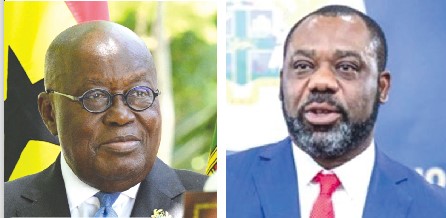
Local content in petroleum upstream sector: 10 years on
I brring you warm, breezy greetings from Takoradi, where I am attending the 2023 Local Content Conference and Exhibition this week.
It is being organised by the Petroleum Commission, regulators of the petroleum upstream sector, which covers exploration activities and drilling, among others.
10th anniversary conference
If this year’s conference is particularly special, it is because this coincides with the 10th anniversary of Ghana passing the Petroleum (Local Content and Local Participation) Regulations, 2013; L.I. 2204.
Aptly, therefore, the theme for the conference is, “10 Years of Local Content in Ghana’s Upstream Petroleum Industry – Achievements, Challenges, And Prospects.”
For Energy Minister Dr Matthew Opoku Prempeh, local content in the upstream petroleum sector is nothing short of an article of faith.
On several platforms, he has declared his unwavering faith in Ghanaian talent and skills, stating that it is unacceptable that we remain mere spectators in the process by which our natural resources are exploited.
The duty of the state, he insists, is therefore, to do all it can to empower Ghanaians to be leading lights in this highly complex industry.
Following Ghana’s successful discovery of oil in 2007 after several unsuccessful attempts, the then NPP government under the leadership of J.A. Kufuor held a number of consultative meetings with key stakeholders to address some critical concerns and build consensus on efficient and sustainable management of our oil resources for the benefit of Ghanaians.
Subsequently, in February 2008, a major national conference was held in Accra dubbed ‘Ghana National Forum on Oil and Gas Development’ to discuss a number of pertinent issues, including ‘enhancing Ghanaian participation in the emerging oil and gas industry.’
The passage of the Local Content and Local Participation Regulations (L.I 2204) in 2013 was one of the several important outcomes of the forum.
The mandate of L.I. 2204 was to specify minimum obligations for operators in the upstream petroleum sector with respect to local capacity development.
In line with our objective to build capacities and skills of industries, as well as develop internationally competitive business, L.I. 2204 also requires all foreign companies operating in the upstream sector in Ghana to incorporate Joint Ventures with indigenous Ghanaian companies.
Subsequently, under Dr Prempeh, there has been amendment to L.I. 2204 with the passage of the Petroleum (Local Content and Local Participation) (Amendment) Regulations, 2021; L.I. 2435.
This has opened up the ways of collaboration between Indigenous Ghanaian Companies (IGCs) and foreign entities that desire to undertake various scopes of contracts in servicing the Exploration and Production (E&P) spectrum in Ghana.
Whereas L.I. 2204 essentially provided for joint venture partnerships as the main mode of collaboration between IGCs and foreign companies to undertake petroleum activities/oilfield services in Ghana, L.I. 2435 has added strategic alliance and channel partnership.
Achievements, challenges
Ten years after the passage of L.I. 2204 and its implementation, the upstream petroleum sector has witnessed remarkable achievements.
In 2021 for instance, out of a total of US$ 1.3 billion value of services available, US$ 238 million went to IGC while US$ 1.1 billion went to Joint Ventures (involving Indigenous Ghanaian companies).
Further, between 2014 -2022, out of total contracts valued at US$17 billion, IGCs and Joint Ventures benefitted from contract values worth US$ 3.4 billion and US$5 billion, respectively.
Most importantly, industrial establishments that were non-existent prior to the passage of the L.I. have emerged.
There have been significant in-country investments by way of capital investments, cementing units, waste management/thermal absorption plants, fabrication yards, manufacture of bolts, nuts and valves and refurbishments of some aviation facilities in Takoradi.
In terms of job role localisation, the country has done relatively well, given the age of the industry in Ghana.
Available data shows a job role localisation rate of about 85 per cent with Ghanaians increasingly assuming positions in core technical and managerial roles.
On challenges, the nature of certain contracts makes it difficult to implement local content as envisaged by LI2204.
Further, the joint venture requirement permanently ties non-indigenous Ghanaian companies to a particular IGC, which constrains technology transfer and capacity development, concentrating benefits of the industry to only few entities.
There is clearly a case to be made for further amendments to the regulations to eliminate some of these bottlenecks.
Policy initiatives
Beyond legislative amendments, some of the policy initiatives being pursued by government to give full meaning to local content include empowering local firms to play progressively active roles in the oil and gas value chain through capacity development and financing support, and aggressively investing in education and skills enhancement of Ghanaians through programmes, such as the Accelerated Oil Capacity Development Programme (AOGC).
The future of local content in this important sector looks quite promising indeed.
Rodney Nkrumah-Boateng,
Head, Communications & Public Affairs Unit,
Ministry of Energy.
E-mail:
